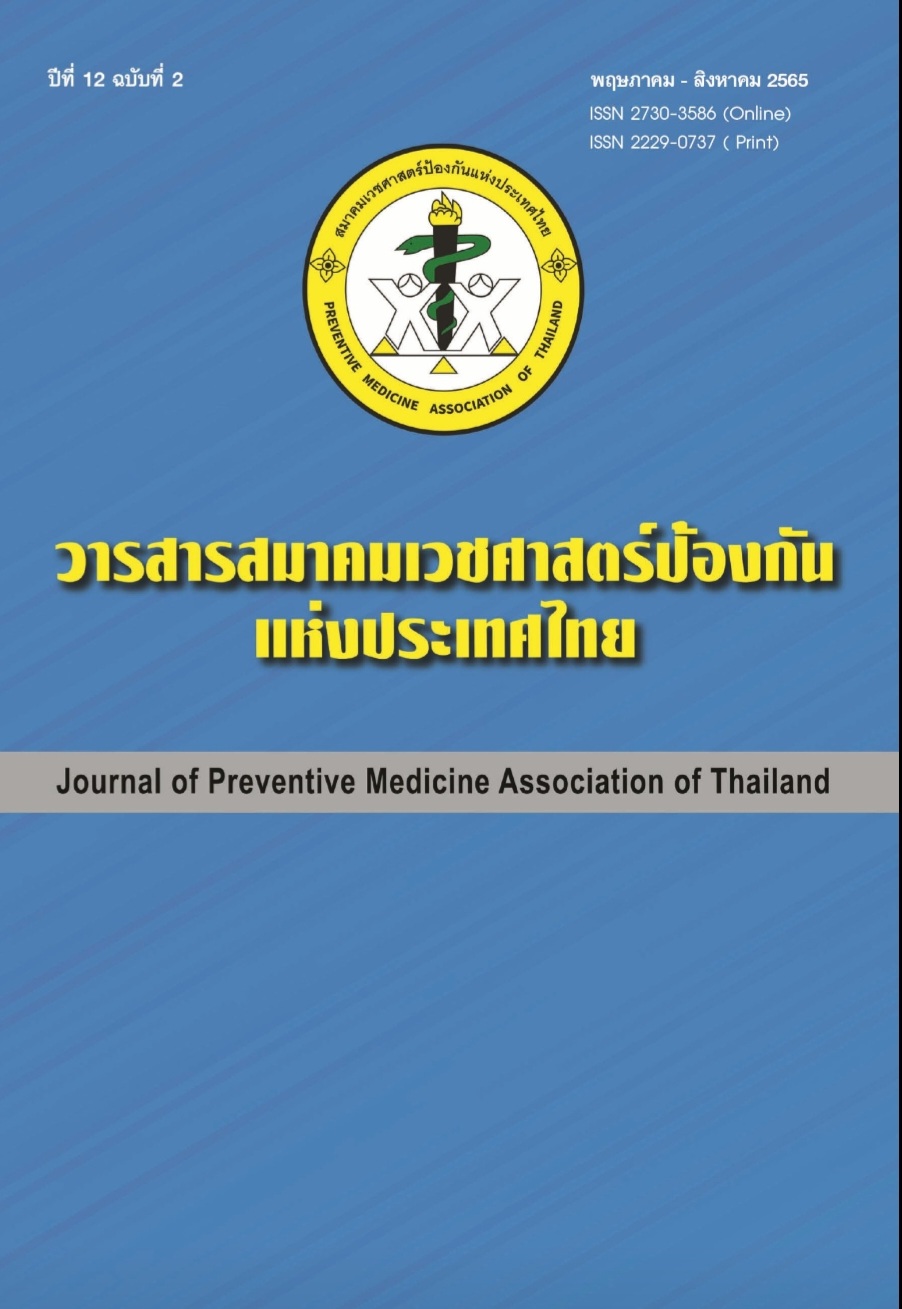Development of a surgical nursing system for patients with airborne infectious diseases Phra Nakhon Si Ayutthaya Hospital
Keywords:
surgical nursing system, patients with airborne infectious diseasesAbstract
Objectives: Aimed to conduct an analysis on situations, problems and obstacles in the surgical nursing system for patients with airborne infectious diseases. To develop a surgical nursing system for patients with airborne infectious diseases and to study the results of system development surgical nursing care for patients with airborne infectious diseases.
Methods: A Participatory Action Research, Between October 2021 to August 2022, Using a questionnaire evaluation form competency of registered nurse with airborne infectious diseases specialization, questionnaire on patient’s satisfaction on surgery-related nursing. The authors have selected, as a sample, 36 registered nurses who have taken part in taking care patients with airborne infectious diseases patients and 30 airborne infectious disease patients who have undergone surgery.
Result: The competency of registered nurse’s performance on practicing care to patients with airborne infectious diseases. The findings, which evaluates selected registered nurses in multiple dimensions including screening dimension, disease prevention, control and monitoring dimension, patient and his family nursing care provision dimension, emotional dimension, communication and coordination skills dimension and self-learning and management dimension, is that the nurses’ level of competency is statistically significantly higher than pre-development period (p<.001). No statistically significant in professional ethics. Outcomes of the development this system, as found by this study, includes a statistically significant decrease (p<.001). Patient’s level of satisfaction regarding surgery-related nursing care is statistically significantly higher than pre-development period (p<.001).
Conclusion: The development of such a system and its subsequent evaluation result are also included in this study.
References
สารานุกรมเสรีวิกิมีเดีย. โรคที่แพร่เชื้อทางอากาศ. [อินเทอร์เน็ต]. 2565 [เข้าถึงเมื่อ 1 มิ.ย.2565]. เข้าถึงได้จาก: https://th.wikipedia.org/wiki/การแพร่เชื้อทางอากาศ.
สมพร สังข์แก้ว, ธีรนุช ห้านิรัติศัย, บุญใจ ศรีสถิตนรากูร. สมรรถนะพยาบาลวิชาชีพด้านการพยาบาลผู้ป่วยโรคติดต่ออุบัติใหม่. วารสารสภาการพยาบาล 2563;35(3):69-86.
กรมควบคุมโรค กระทรวงสาธารณสุข. โรคติดเชื้อไวรัสโคโรนา 2019 (COVID-19). [อินเทอร์เน็ต]. 2565 [เข้าถึง เมื่อ 1 มิ.ย.2565]. เข้าถึงได้จาก: https://ddc.moph.go.th/viralpneumonia/.
แผนกสารสนเทศ โรงพยาบาลพระนครศรีอยุธยา. สถิติตัวชี้วัดหน่วยงาน โรงพยาบาลพระนครศรีอยุธยา ปี 2563-2564. พระนครศรีอยุธยา: โรงพยาบาลพระนครศรีอยุธยา; 2565.
Donabedian A. An introduction to quality assurance in health care. New York: Oxford University Press; 2003.
Kemmis K, McTaggart R. Participatory action research. Handbook of qualitative research. London: SAGE; 2000. p.567-605.
Proctor B. Training for the supervision alliance attitude, skills and intention in fundamental themes in clinical supervision. London: Routledge; 2001.
มณี อาภานันทิกุล, วรรณภา ประไพพานิช, สุปราณี เสนาดิสัย, พิศสมัย อรทัย. จริยธรรมในการปฏิบัติการพยาบาลของพยาบาลไทยตามการรับรู้ของผู้บริหารทางการพยาบาล. วารสารสภาการพยาบาล 2557;29(2):5-20.
ศศิธร ช่างสุวรรณ์, จินต์จุฑา รอดพาล, ศรีสุรีย์ สูนพยานนท์, สมทรง บุตรชีวัน. การพัฒนาระบบการพยาบาลระยะฉุกเฉินในผู้ป่วย STEMI งานอุบัติเหตุและฉุกเฉิน โรงพยาบาลพระนครศรีอยุธยา. วารสารสมาคมเวชศาสตร์ป้องกันแห่งประเทศไทย 2561;8(3):372-84.
เสาวลักษณ์ มนูญญา. ผลการจัดบริการพยาบาลผ่าตัดตามแนวคิดลีนต่อระยะเวลาการรอคอยและความพึง พอใจของผู้รับบริการโรงพยาบาลดำเนินสะดวก. วารสารพยาบาลตำรวจ 2560;9(1):72-81.
Downloads
Published
How to Cite
Issue
Section
License
Copyright (c) 2022 Journal of Preventive Medicine Association of Thailand

This work is licensed under a Creative Commons Attribution-NonCommercial-NoDerivatives 4.0 International License.
บทความที่ลงพิมพ์ในวารสารเวชศาสตร์ป้องกันแห่งประเทศไทย ถือเป็นผลงานวิชาการ งานวิจัย วิเคราะห์ วิจารณ์ เป็นความเห็นส่วนตัวของผู้นิพนธ์ กองบรรณาธิการไม่จำเป็นต้องเห็นด้วยเสมอไปและผู้นิพนธ์จะต้องรับผิดชอบต่อบทความของตนเอง






